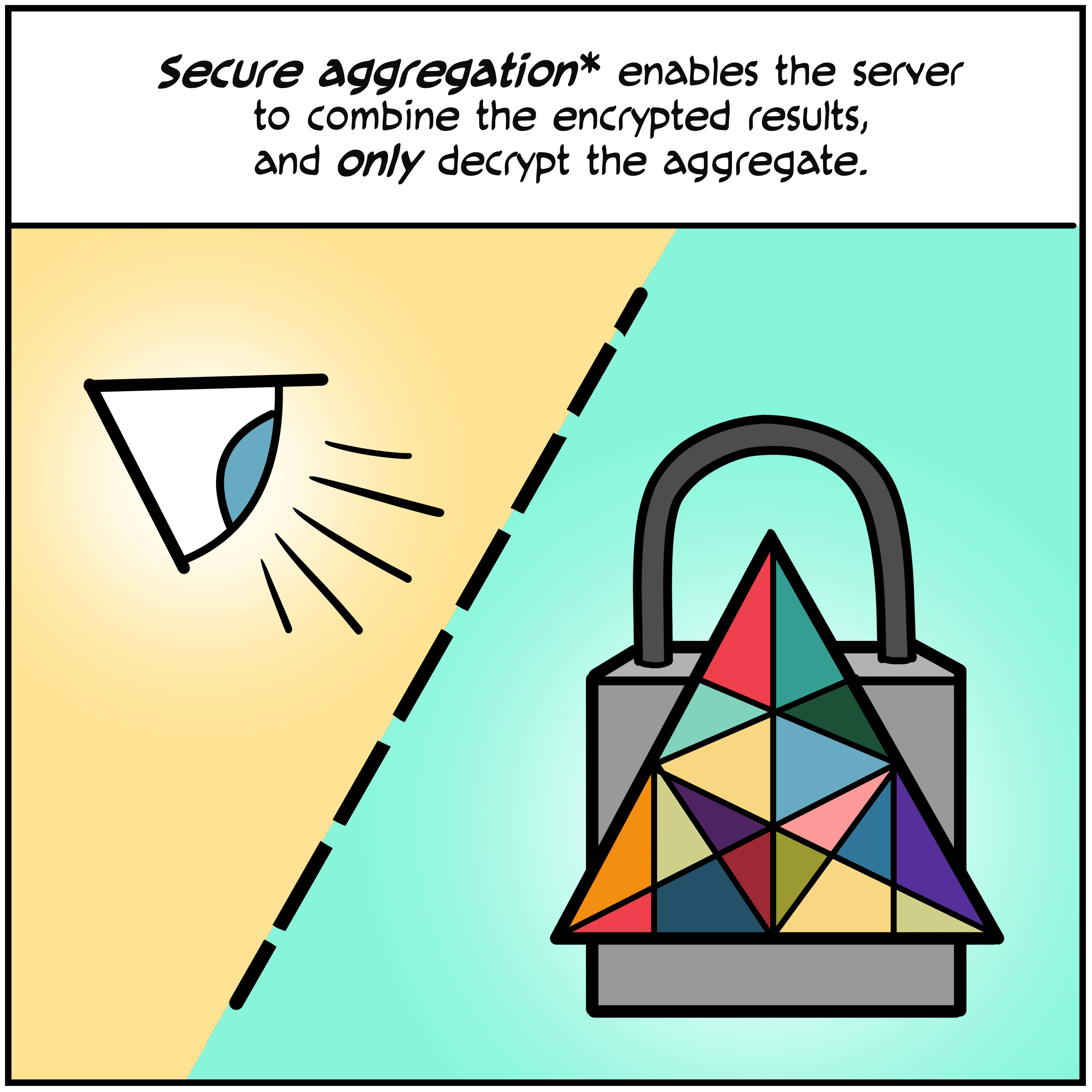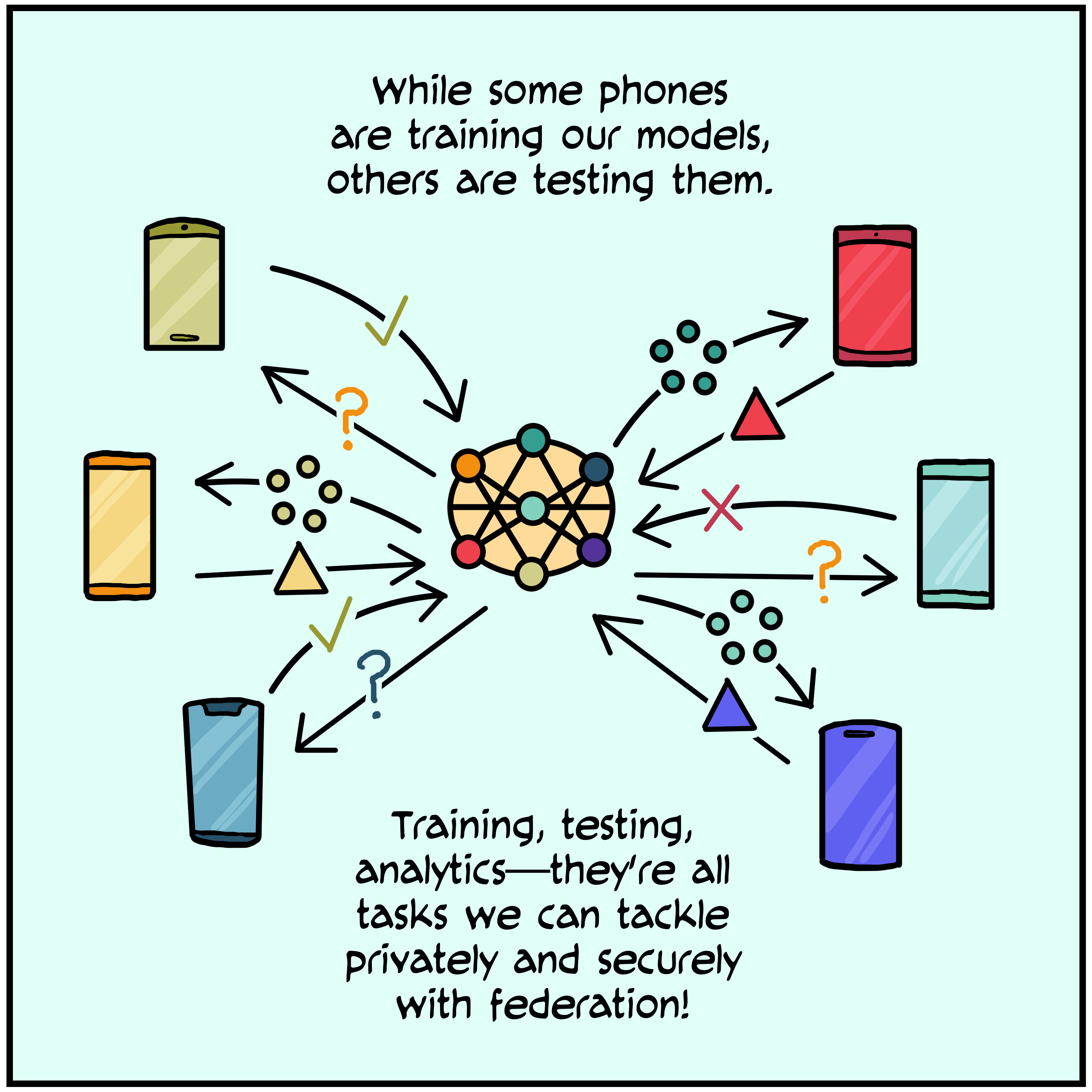-
Implementation of Federated Learning gist of which are:
- Train your model without uploading client's data on cloud
- Provides assurance of privacy in terms of interests and activity
- Model hosted on cloud only uplaods the results back to the server
- Thus, full-flegded security and assurance of none sort of fetching data/leakage.
- More Details on Federated Learning : https://federated.withgoogle.com/
-
Uses MNIST dataset of different writing styles considering them as data of various client's.
-
Train model on federated data; predicting and customizing model implementation for accurate results.
- tensorflow_federated_nightly also bring in tf_nightly, which can causes a duplicate tensorboard install, leading to errors.
- Follow the commands below to set up your environment correctly
pip uninstall --yes tensorboard tb-nightlyremoving previous versions to avoid duplicate installationspip install --quiet --upgrade tensorflow-federated-nightlyupgrading the packagepip install --quiet --upgrade nest-asyncioinstalling/upgrading other dependenciespip install --quiet --upgrade tb-nightlyor tensorboard, not both
- This project has been setup in Google Colaboratory Notebook. To have better experience and to keep focus on main thing, use Google Colaboratory Notebooks for easy environment setup.
- Check out https://www.tensorflow.org/federated/ for more details on
tensorflow_federated
- Fork this repository (Click the Fork button in the top right of this page, click your Profile Image)
- Clone your fork down to your local machine
git clone https://github.com/your-username/mage-Classification-by-Federated-Learning.git- Create a branch
git checkout -b branch-name- Make your changes
- Commit and push
git add .
git commit -m 'Commit message'
git push origin branch-name- Create a new pull request from your forked repository (Click the
New Pull Requestbutton located at the top of your repo) - Wait for your PR review and merge approval!
- Star this repository if you had fun!
- Implementation of self-customized models on your own.
- Extend the application of Federated Learning to various problems related to data privacy concerns.
- Have a better understanding in the sub-field of implementing data models using Federated Learning approach.

